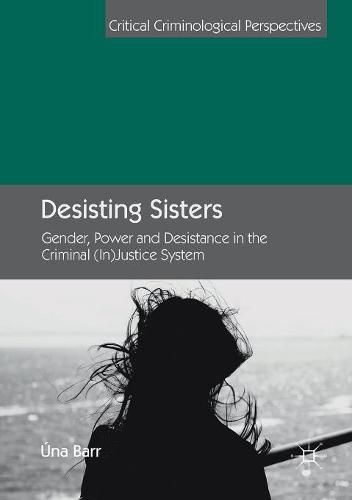Readings Newsletter
Become a Readings Member to make your shopping experience even easier.
Sign in or sign up for free!
You’re not far away from qualifying for FREE standard shipping within Australia
You’ve qualified for FREE standard shipping within Australia
The cart is loading…






This book provides an important, critical, feminist perspective on desistance theory and practice. It is built around 23 original, narrative interviews with women and the staff of the community projects they attended, as well as a year of observations at Northshire Women’s Centres. The book is concerned with outlining a feminist approach to desistance which recognises that the majority of women in the criminal justice system come from backgrounds of abuse, economic disadvantage and have alcohol, drug and mental health issues. The book is also be concerned with challenging the dichotomy of narratives of victimisation and survival while recognising that women have agency. In doing so, Desisting Sisters contests the neoliberal and patriarchal approach to desistance which promotes women’s role as care givers and unpaid volunteer workers. Ultimately, Barr contends that women’s desistance can resist neo-liberal, patriarchal constructs, much in the same way that feminist criminology has contended that women’s offending more generally, often does. This book will be of particular use and interest to those studying modules on both traditional and critical criminology, criminal justice, psychology, sociology and social work courses.
$9.00 standard shipping within Australia
FREE standard shipping within Australia for orders over $100.00
Express & International shipping calculated at checkout
This book provides an important, critical, feminist perspective on desistance theory and practice. It is built around 23 original, narrative interviews with women and the staff of the community projects they attended, as well as a year of observations at Northshire Women’s Centres. The book is concerned with outlining a feminist approach to desistance which recognises that the majority of women in the criminal justice system come from backgrounds of abuse, economic disadvantage and have alcohol, drug and mental health issues. The book is also be concerned with challenging the dichotomy of narratives of victimisation and survival while recognising that women have agency. In doing so, Desisting Sisters contests the neoliberal and patriarchal approach to desistance which promotes women’s role as care givers and unpaid volunteer workers. Ultimately, Barr contends that women’s desistance can resist neo-liberal, patriarchal constructs, much in the same way that feminist criminology has contended that women’s offending more generally, often does. This book will be of particular use and interest to those studying modules on both traditional and critical criminology, criminal justice, psychology, sociology and social work courses.